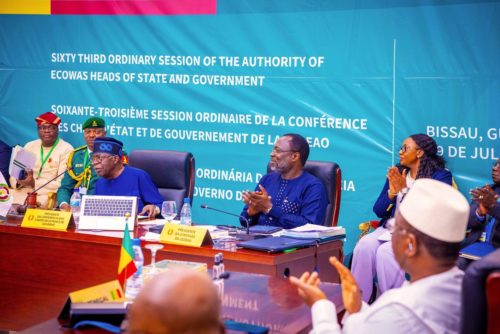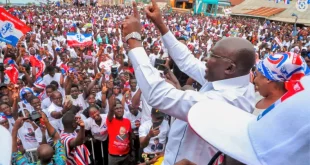The Economic Community of West African States (ECOWAS) elected Bola Ahmed Tinubu, the president of Nigeria, to serve as its head of state for the upcoming year.
Umaro Sissoco Embalo is replaced as Guinea-Bissau’s president by Tinubu.
While acknowledging its difficulties, Tinubu emphasized the value of democracy as the finest form of government during a meeting in Bissau.

He emphasized the importance of West Africa serving as an example for the rest of Africa and the rest of the globe by sustaining democracy and avoiding recurrent coups.
Omar Alieu Touray, head of the ECOWAS commission, pleaded with the juntas in charge of Mali, Guinea, and Burkina Faso to adhere to the timeframes set for the changeover to civilian rule.
He issued a warning that harsh penalties might be applied if these deadlines weren’t met.
It was reported on Saturday that the West African Economic and Monetary Union (UEMOA) was lifting the suspension on Mali, which had been put in place in January 2022 because of the military’s projected timescale for resuming civilian authority.
In the past, ECOWAS had taken a number of actions against Mali, but they were later lifted in July 2022 when the junta agreed to a transition by March 2024.
Touray also noted that ECOWAS had created a commission to evaluate Mali’s security options as the UN’s ten-year peacekeeping operation comes to an end.
This commission has 90 days to submit recommendations.
In the upcoming year, Tinubu, who took office as president of Nigeria in May, promised to promote inclusive economic integration among ECOWAS countries.
He said that enough hardship had already been suffered and that the issue of the region’s people being exploited needed to be addressed.
ECOWAS has Tinubu’s backing, and he declared that Nigeria is once again an active player in regional affairs.
Source: Ghanatodayonline.com
 Ghanatodayonline.com News, Politics, Health, Education & More
Ghanatodayonline.com News, Politics, Health, Education & More



